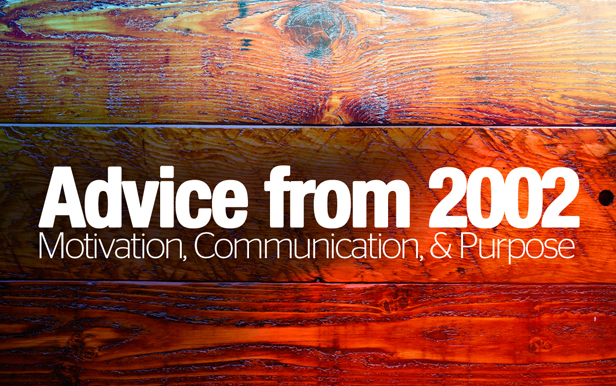You have /5 articles left.
Sign up for a free account or log in.
Every now and then, a post on the Student Affairs Collective captures my attention and gets me reflecting on my own experiences as a student affairs professional. Ben Weiner's post on "The Challenge of Motivating Yourself in Student Affairs" is a call for assistance/advice/support by a new practitioner who is navigating their way through their first professional role in the field.
Having been in his current role for 5 months, Weiner is going through an important phase in his career. In the post, he talks about the challenge of figuring out what to do next after he completes his assigned tasks. He also writes about the context of his current role and how he hopes to influence structures/policies/culture within his institution.
As an independent consultant, I am motivated by several factors. The primary factor being that I truly enjoy the work that I get to do on a daily basis. My job is my own and it's unlike any role that I've ever had within a traditional organizational structure.
However, when I was a new professional, I too had to go through a period of professional transition, self-awareness, and growth. It was about six months into my first student affairs job in 2002 when I realized that I had figured out how to do the job with maximum efficiency. I found myself sitting at my desk with a lot of free time, several big picture questions about the university, and a lack of direction with regards to my role within the organization. So, what did I do to grow and mature as professional? Here, in no particular order, are some of the things that helped me to stay motivated as I progressed through my first year as a student affairs professional:
- A Thousand Coffees - Establishing a network within your organization is extremely important. Is coffee important? No, but if you're a coffee person, it's helpful. Get to know as many people within your institution as you can. Schedule 30 minute conversations with people from all over the organizational chart.
- Find Answers to the "Why" - When I was a new professional, I constantly had questions about why the organization did this or that. I lacked context, big picture information, and experience. I asked so many questions about so many things that I'm sure I had a reputation for being the "why guy." However, not all questions can be answered or even if an answer is provided, it might not be very satisfying. That's okay, just keep layering bits and bytes of organizational information. That context matters so much because it helps with developing strategic thinking that's based on critical information.
- Finding Purpose - In Weiner's post, he questions whether or not he's in the right profession. I think that's great. Figuring out what you want to do, who you want to be, and why you're doing it is part of the journey of life. Always strive to identify what your purpose is all about. Some people call this finding your passion while others might seek a sense of workplace validation. In any case, spend some time within an organization before you start to doubt your place within the field. I came into a career in student affairs because I needed a job. It wasn't because I was thinking of myself as a student affairs person. Remember, the profession might be a great fit for you, but the organization that you're currently with might not be.
- It's Okay to Look Ahead - Being present in the here and now is important. However, I'm a huge advocate for looking down the road a bit. What's next? What's interesting? Before I went off to graduate school (to pursue a masters degree in higher education administration), I spent an extra year learning all about the student affairs profession. I could have left my first job a bit earlier, but I knew that I needed some "professional seasoning" before I went off on the next step of my career path.
- Make the Organization Better - No matter what, it's important to remember that the focus of a new practitioner should be to make the organization better. Do such a good job at your institution that you're invited to be on committees or people are asking you for advice. Work harder and smarter than everyone. If you've got free time, learn as much as you can about yourself, the organization, and the things that can be done to make things better. When you're in charge of creating your own task check-lists, you'll never run out of things to do, create, and change.
Yes, this post was completely unsolicited. Hopefully it wasn't too much of a "back in my day" exploration. What would you add to this list? The challenges for new professionals are often quite common. Questions abound and thankfully, support is available.
Do you tweet? Let's connect. Follow me on Twitter.









